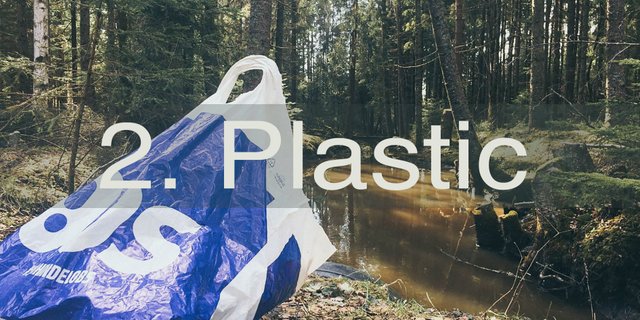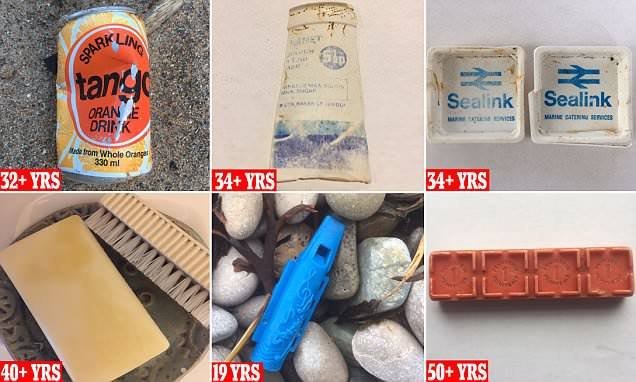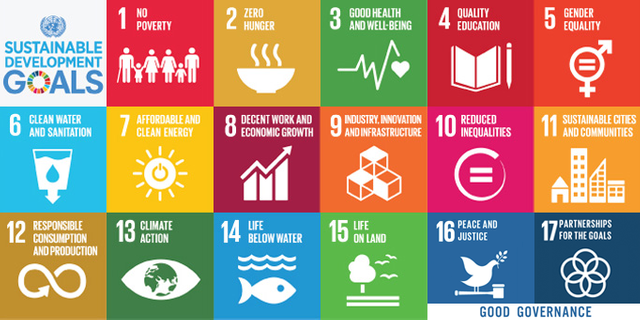2. Plastic – Solutions in Blockchain

8 million tons of fresh plastic waste … dumped in our oceans … every year.
And that is just in the oceans … what about the waste floating around on the streets, cities, in nature? Just a small part is recycled by recycling stations. The major part is unfortunately adrift somewhere in the oceans, rivers, lakes and nature, not decomposing even after 40+ years.

Source: Daily Mail
This waste is an extreme threat to all kind of animals who consider it to be some kind of food. We’ve all seen the pictures of dead birds and sea animals with nothing more in their stomach than undigested plastic. Lots of it.
All of a sudden we have created something called the Pacific Trash Vortex aka the Great Pacific Garbage Patch, that is just so sad! Most parts of these floating patches are made up by small bits of non biodegradable plastic, called microplastics, and can’t always be seen by the naked eye. The amount we see on the surface is only a smaller part, most of the waste sinks to the bottom of the ocean, with devastating consequences.
The plastic is collected, now what?
Some companies try to come up with ‘clever’ solutions, such as mixing plastic granulates with asphalt to build new sustainable roads. Okay, the waste has been recycled but did they consider what happens when toxic micro-parts of plastic are sipping into our natural water reserves every time it rains? You see, it isn’t just about recycling, it has to be ‘sustainable’ recycling.
But here is the good news: there are some serious efforts made by companies who realise that there is indeed a certain value to what we consider to be garbage or waste. One of those companies is PlasticBank.org from Canada. David Katz and Shaun Frankson are on a mission: they’ve created a platform with the blockchain technology that pays the people of poor countries like Haiti, the Philippines, South Africa and Brazil, when they collect plastic waste and take it to recycling markets.
Solutions with Blockchain and Crypto
Plastic Bank introduced an app that not only tracks how much plastic waste people collect but it provides the people with a digital wallet, making it possible to get paid in cryptocurrencies, tokens or items. This is a huge step forward to their own independence since most of them don’t qualify for banking accounts. The only thing they need is a smartphone to install the app. Their smartphones can get charged at the solar power stations at the stores. They can even buy and pay with their own earned cryptocurrencies and/or tokens at the stores. The plastic markets then recycle the plastic, and more and more companies are willing to buy this recycled plastic.
Another company that works on this problem is empower.eco from Norway. They are building a global ecosystem, powered by blockchain technology. At the same time focusing on solving certain of the 17 UN Sustainable Development Goals:

No poverty
Decent work and economic growth
Reduced inequalities
Responsible consumption and production
Life below water
and I’m convinced that they even can help reach other goals as well.
Good Health and well-being:
The cleaner the oceans, the healthier fish and seafish we will have. Providing good food by doing good is leading to good health and an all over feeling of well-being.
Quality Education:
With the income that’s earned by collecting plastic waste, each community has a choice and the opportunity to provide for good schooling.
Clean Water and Sanitation:
If the rivers are less polluted that will increase the quality of the drinking water.
Life on Land:
When the oceans and the rivers become cleaner, the groundwater will become cleaner and crops, plants and trees will thrive even more.
Social Plastic – When waste becomes a value
It is interesting to see that it’s mostly the poor countries who are the ones with the biggest problems with plastic waste. The problem could turn to be the solution, and it brings along different advantages: the poor people will make their own daily income by recycling, which will give them a new purpose and an overall feeling of hope for a better future. They will help prevent tons and tons of plastic from entering our already vulnerable oceans and damaging all sealife. So, are the poor, mostly uneducated and unbanked people becoming the ones helping us to activate and close the loop?
Now, people who live in more fortunate countries will probably not engage in collecting waste just because they get paid for it. Our focus has to be our environment, and restoring the oceans and forests and acknowledge the fact that we cannot continue to pollute the way we do. Ignorance is not going to do it: we have to educate ourselves and take charge.
Our plastic waste can be recycled and used by all kinds of companies that choose to re-use it. Thus making a big statement of their contribution to a sustainable future.
One thought though … even if we are trying to do our utmost to keep the plastic away from the oceans and nature, there is an urgent need to develop and emphasize on other nature-friendly materials instead of plastic.
Read also part 1. Plastic – Problems & Tips
Once we understand the implications and the consequences we cannot go back to not knowing.
With each purchase we have a choice, let it be a conscious one …
Facebook:
Social Plastic
Instagram:
Life Without Plastic
The Plastic Bank
Plastic Oceans Foundation
Website:
http://www.empower.eco
Text from createyourteam.net